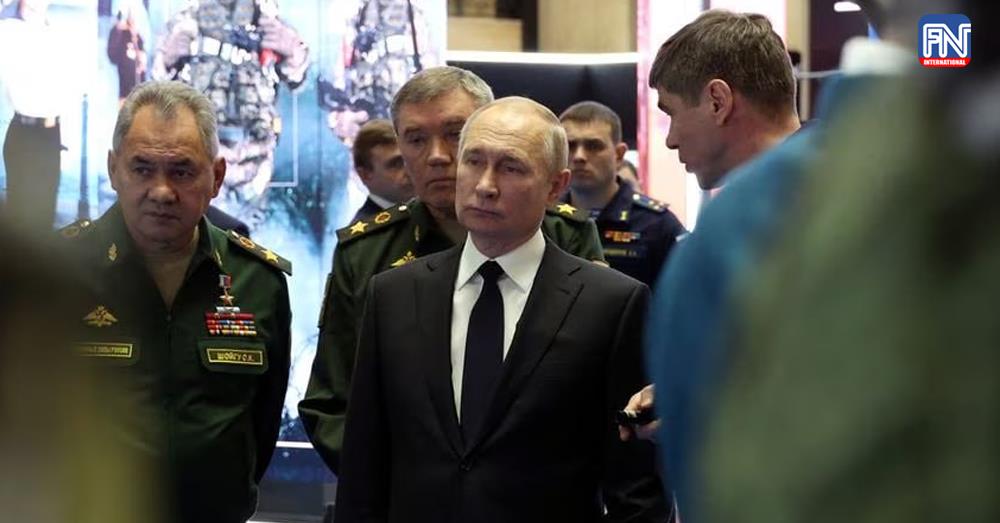MOSCOW, June 21 (Reuters) - President Vladimir Putin said on Wednesday that Russia's new generation of Sarmat intercontinental ballistic missiles, which are capable of carrying 10 or more nuclear warheads, would soon be deployed for combat duty.
In a speech to new graduates of military academies, Putin stressed the importance of Russia's "triad" of nuclear forces that can be launched from land, sea or air.
"The most important task here is the development of the nuclear triad, which is a key guarantee of Russia's military security and global stability," he said.
"Already about half of the units and formations of the Strategic Missile Forces are equipped with the latest Yars systems, and the troops are being re-equipped with modern missile systems with the Avangard hypersonic warhead."
The first Sarmat launchers will be put on combat duty "in the near future", Putin said.
Defence Minister Sergei Shoigu told the assembled graduates in the Kremlin's St George's Hall, which commemorates the greatest feats in Russian military history, that the "collective West" was waging a "real war" against Russia.
Putin has repeatedly said since the start of the Ukraine conflict that Russia is ready to use all means, including nuclear weapons, to defend its "territorial integrity". Last year he said he was placing territories seized in Ukraine that Russia now claims as its own under Moscow's nuclear umbrella.
As recently as last week, however, Putin said Ukrainian forces had "no chance" in their current counteroffensive, and Russia had no need to resort to nuclear weapons.
The new Sarmat missile is designed to carry out nuclear strikes on targets thousands of missiles away in the United States or Europe. But its deployment has proceeded slower than planned, as Russia had said in April 2022 that it would be in place by autumn of that year.
Dmitry Rogozin, then head of Russia's space agency, said at that time that the missiles would be deployed with a unit in the Krasnoyarsk region of Siberia, about 3,000 km (1,860 miles) east of Moscow.
Rogozin said they would be placed at the same sites and in the same silos as the Soviet-era Voyevoda missiles they are replacing, hailing the new "super-weapon" as an historic event that would guarantee the security of Russia's children and grandchildren for the next 30-40 years.





